Cabaret by Joe Masteroff (book), John Kander (music), and Fred Ebb (lyrics) (Brazos Valley Players, 2012)
My Roles:
Director, Producer, Choreographer, Lighting Designer, Sound Designer

















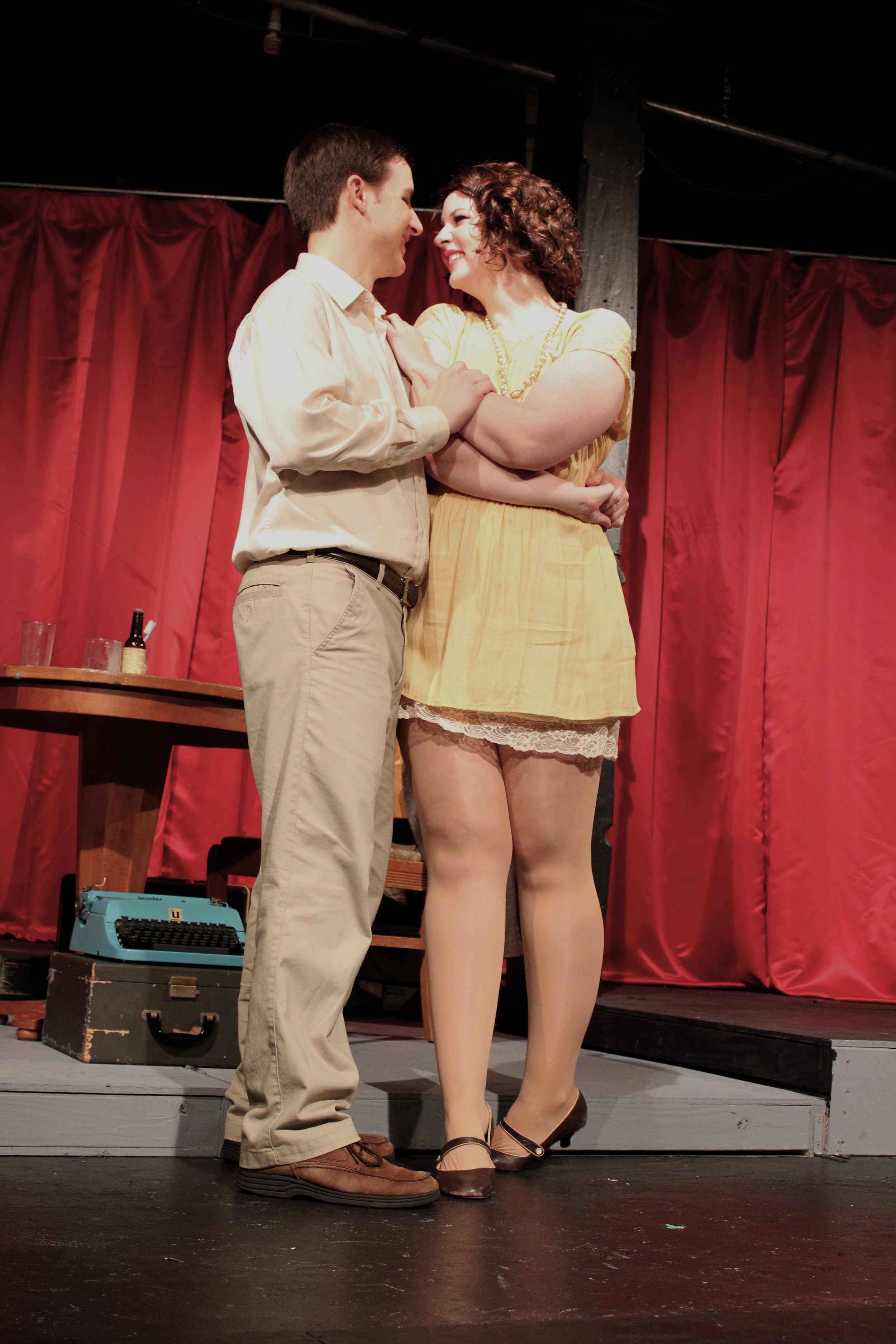
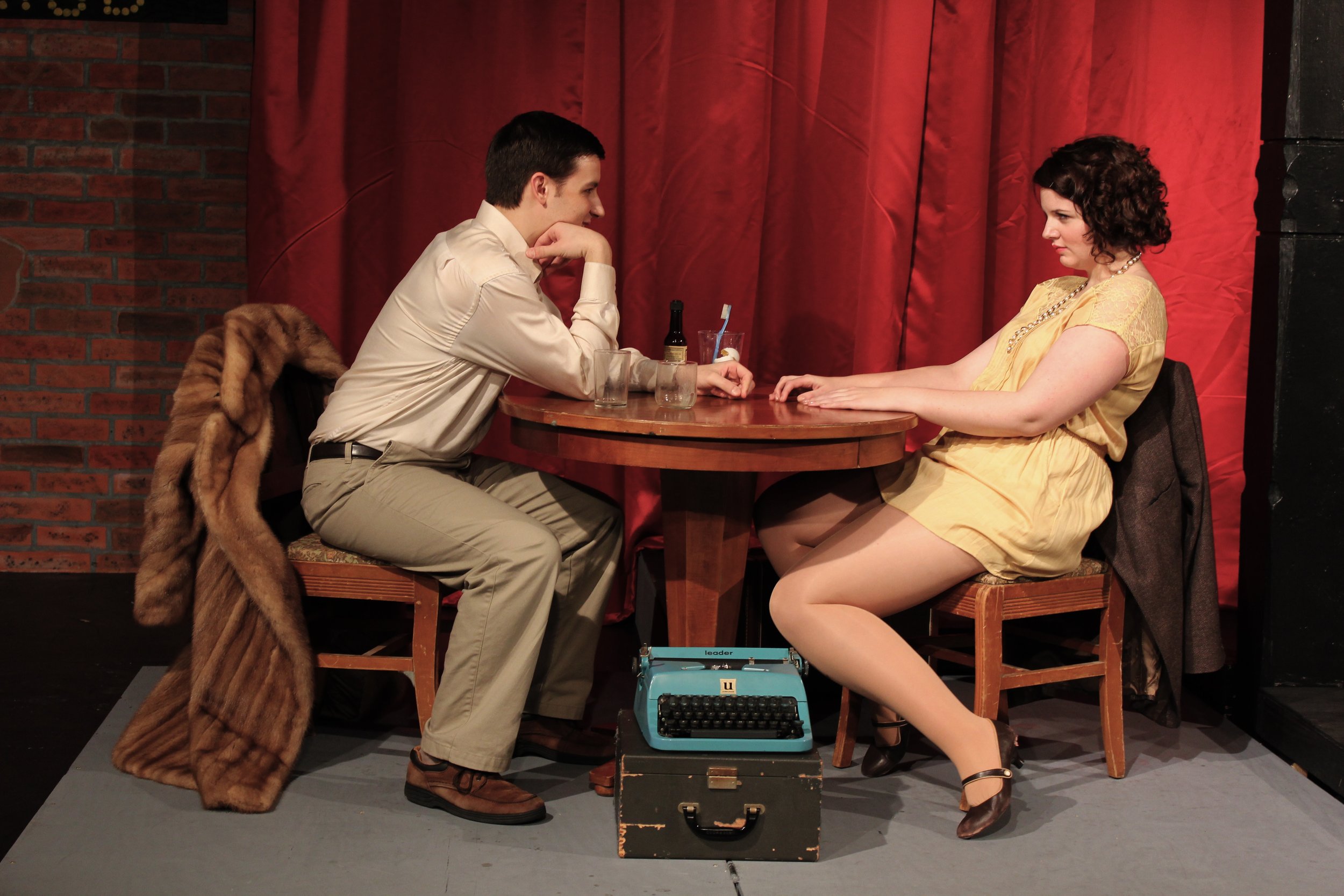








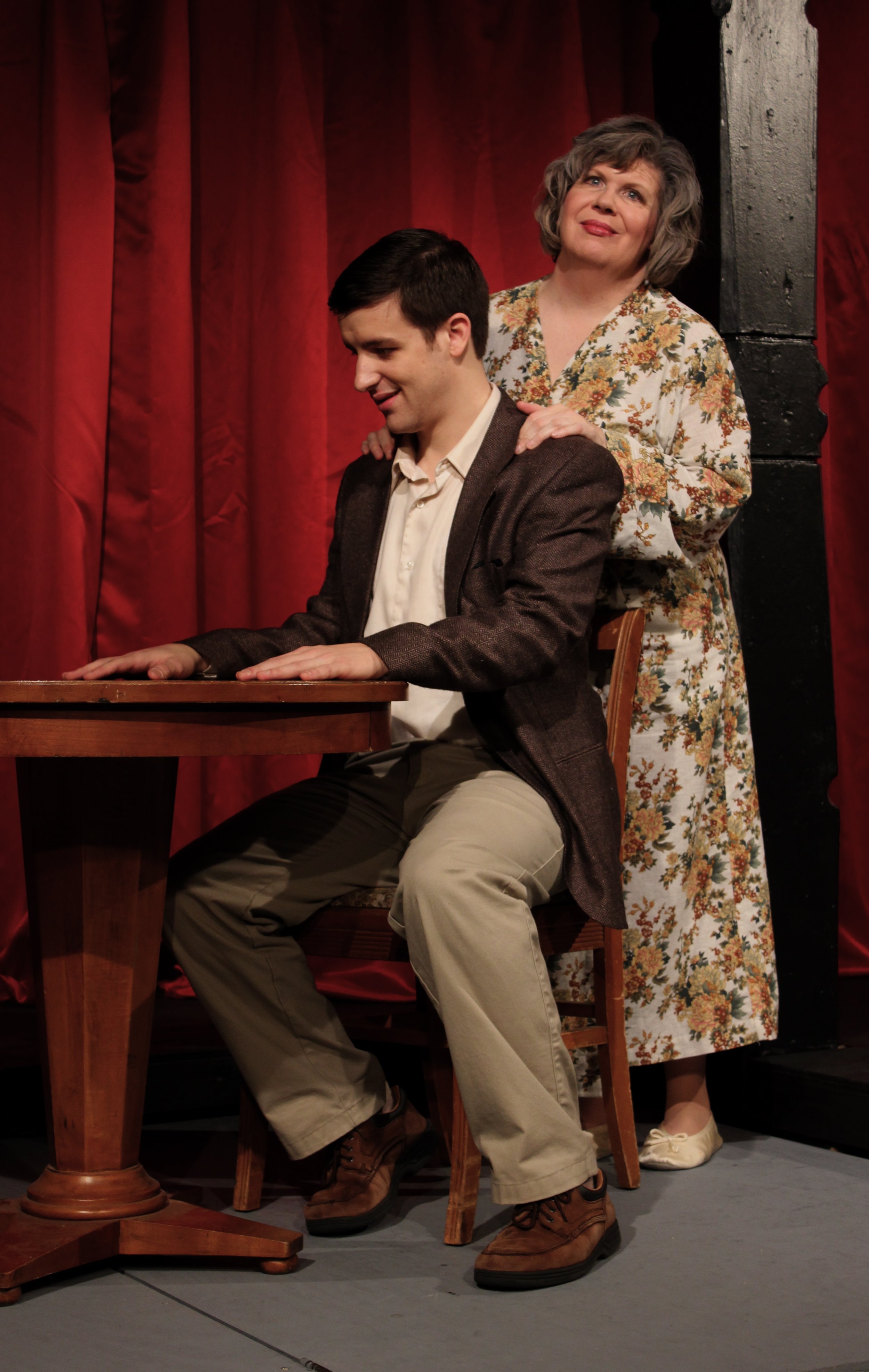













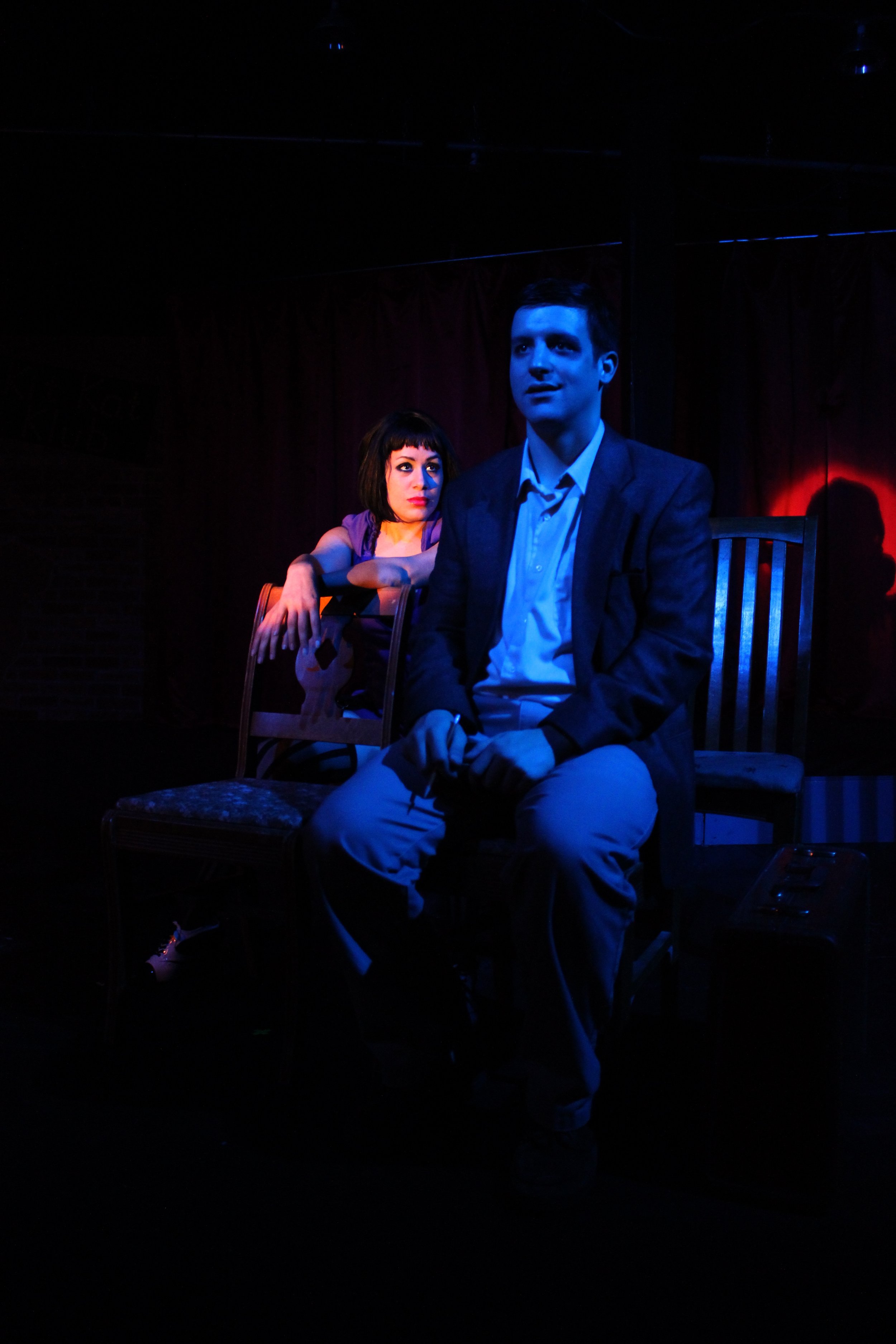




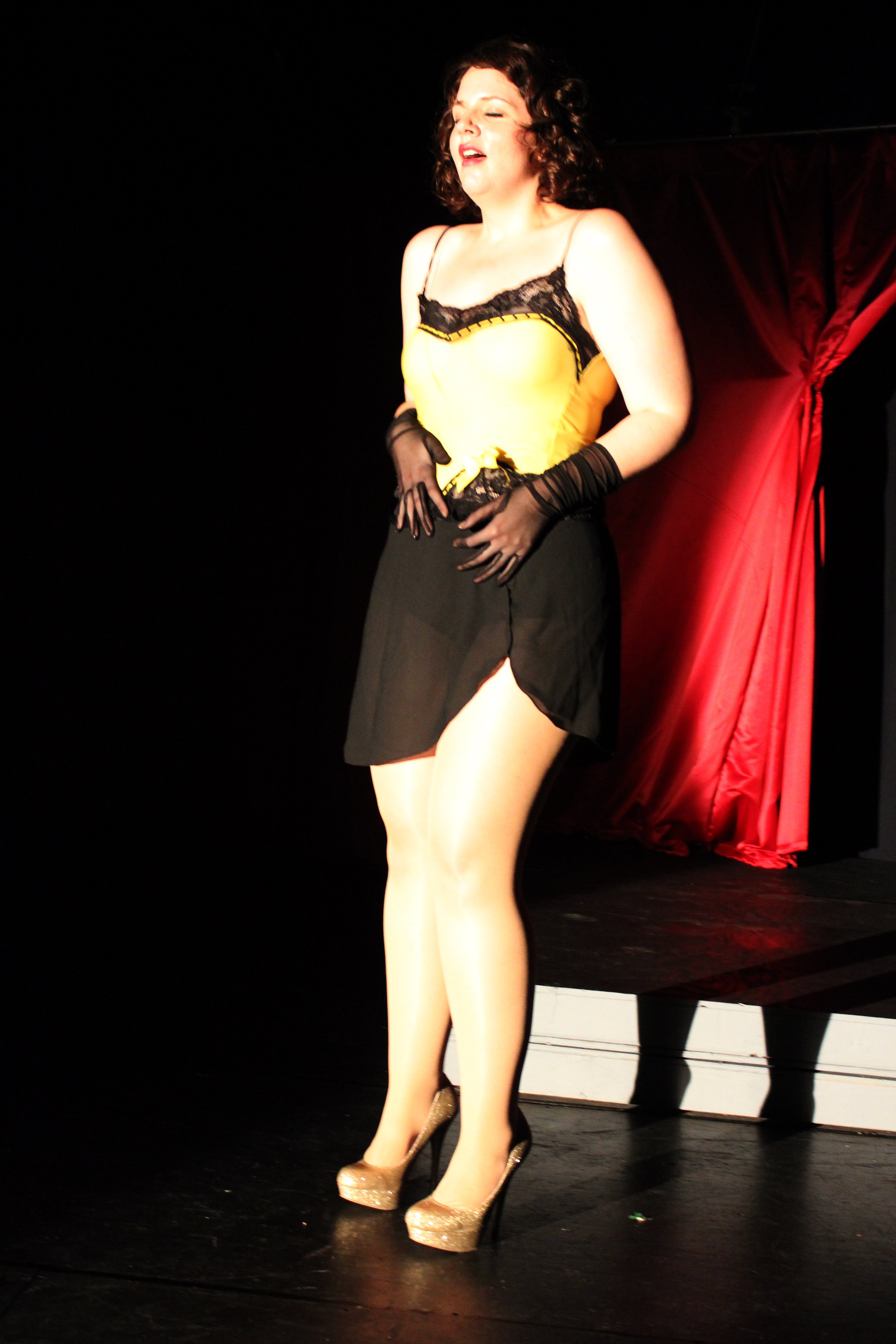





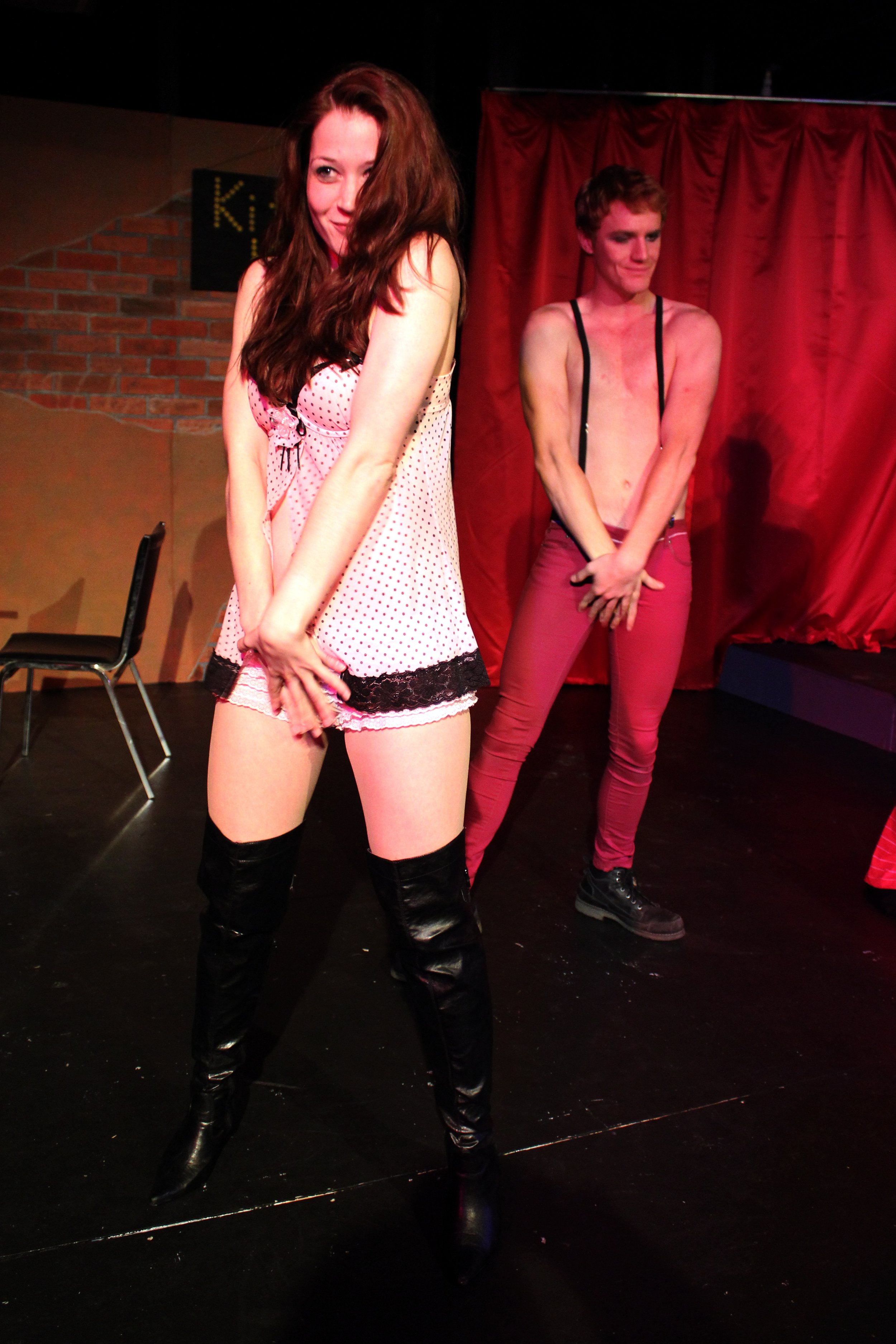
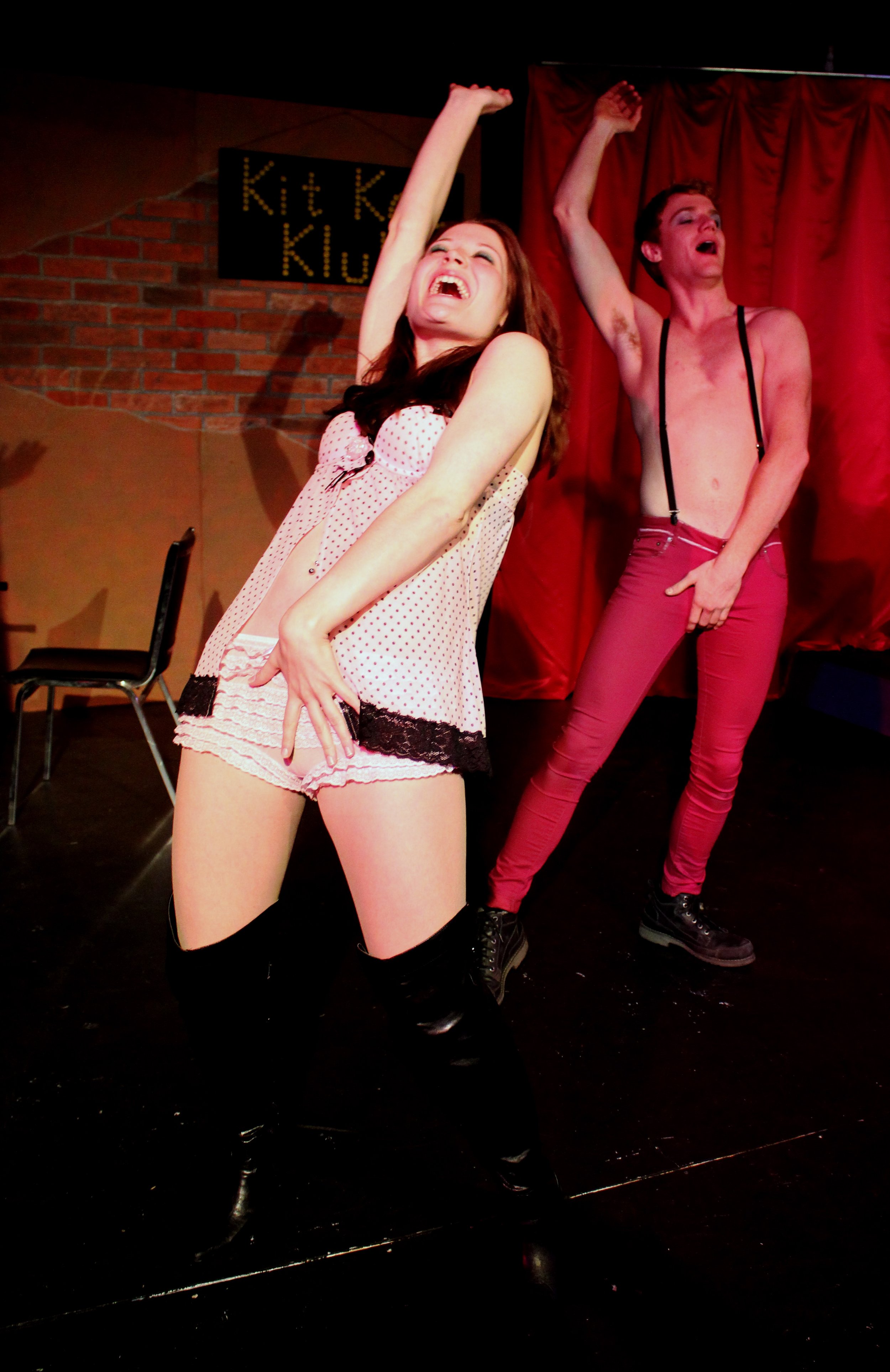

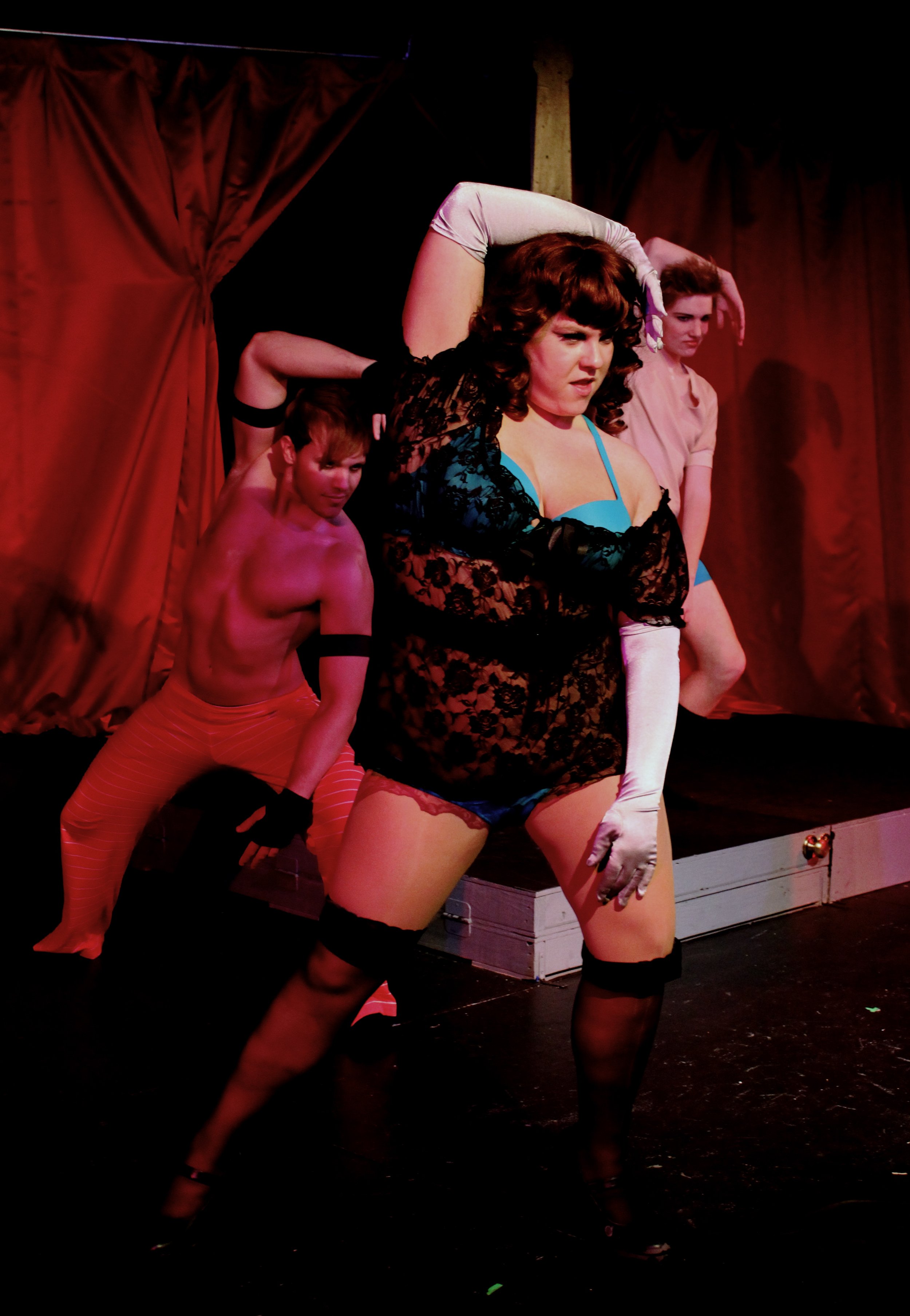






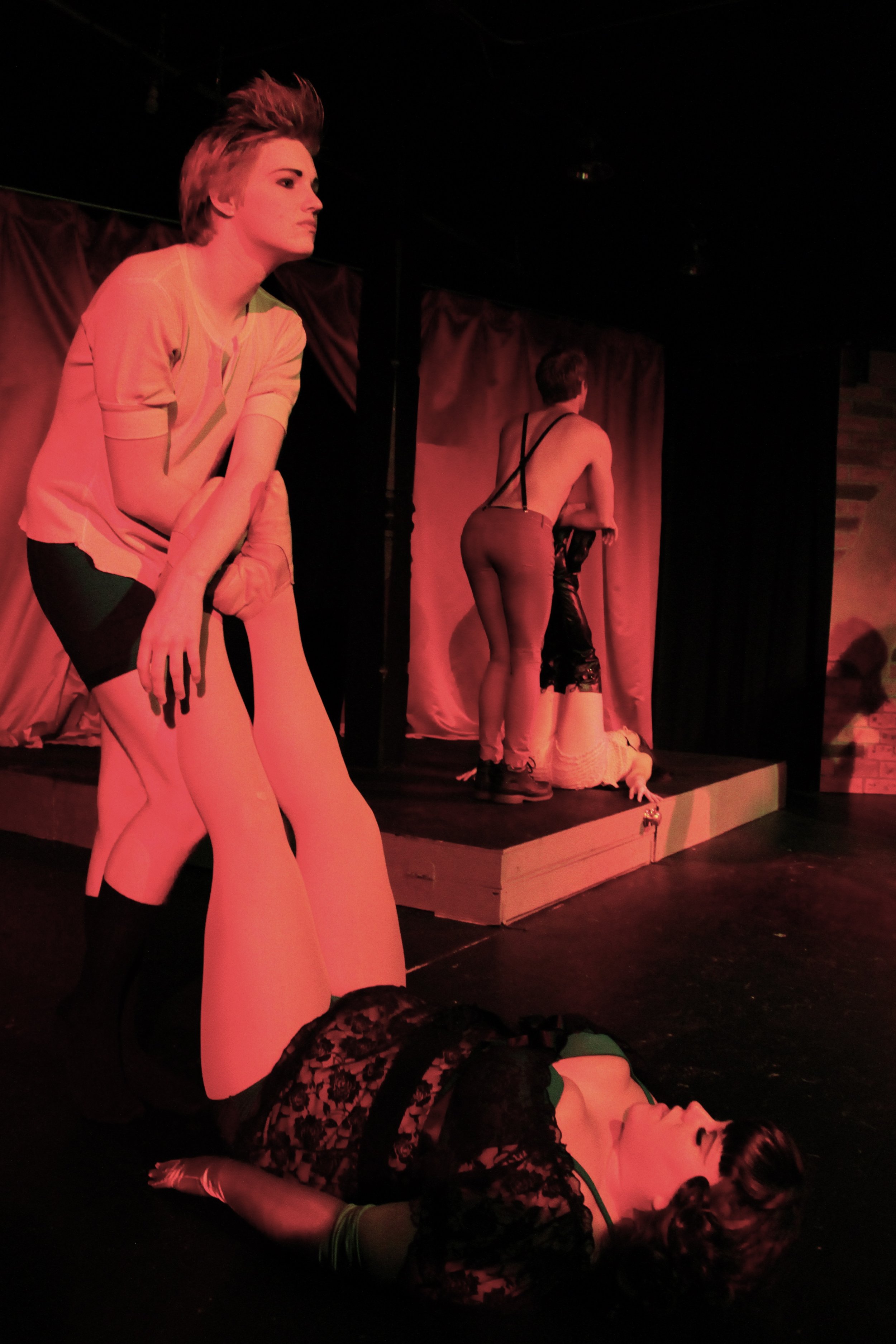

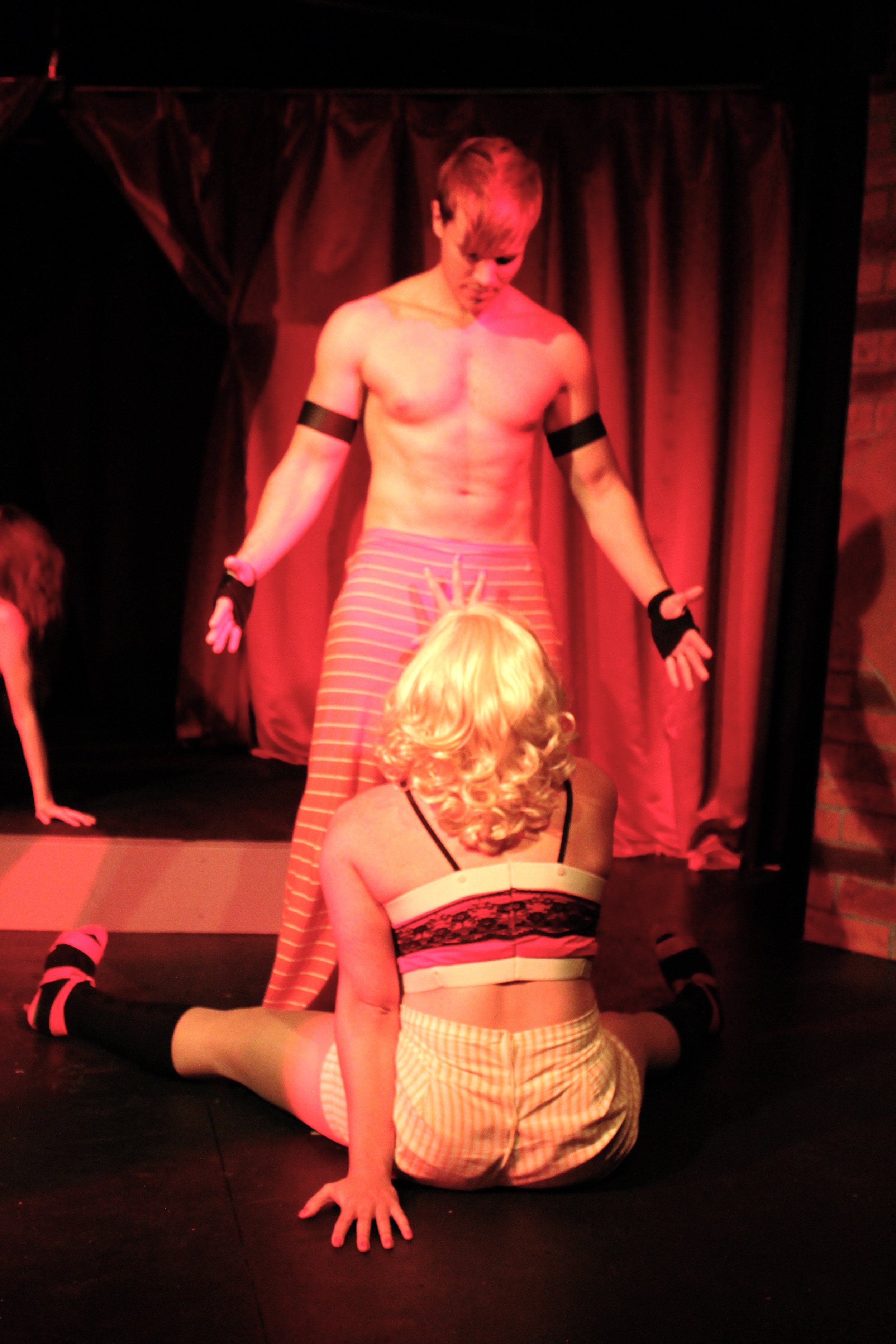


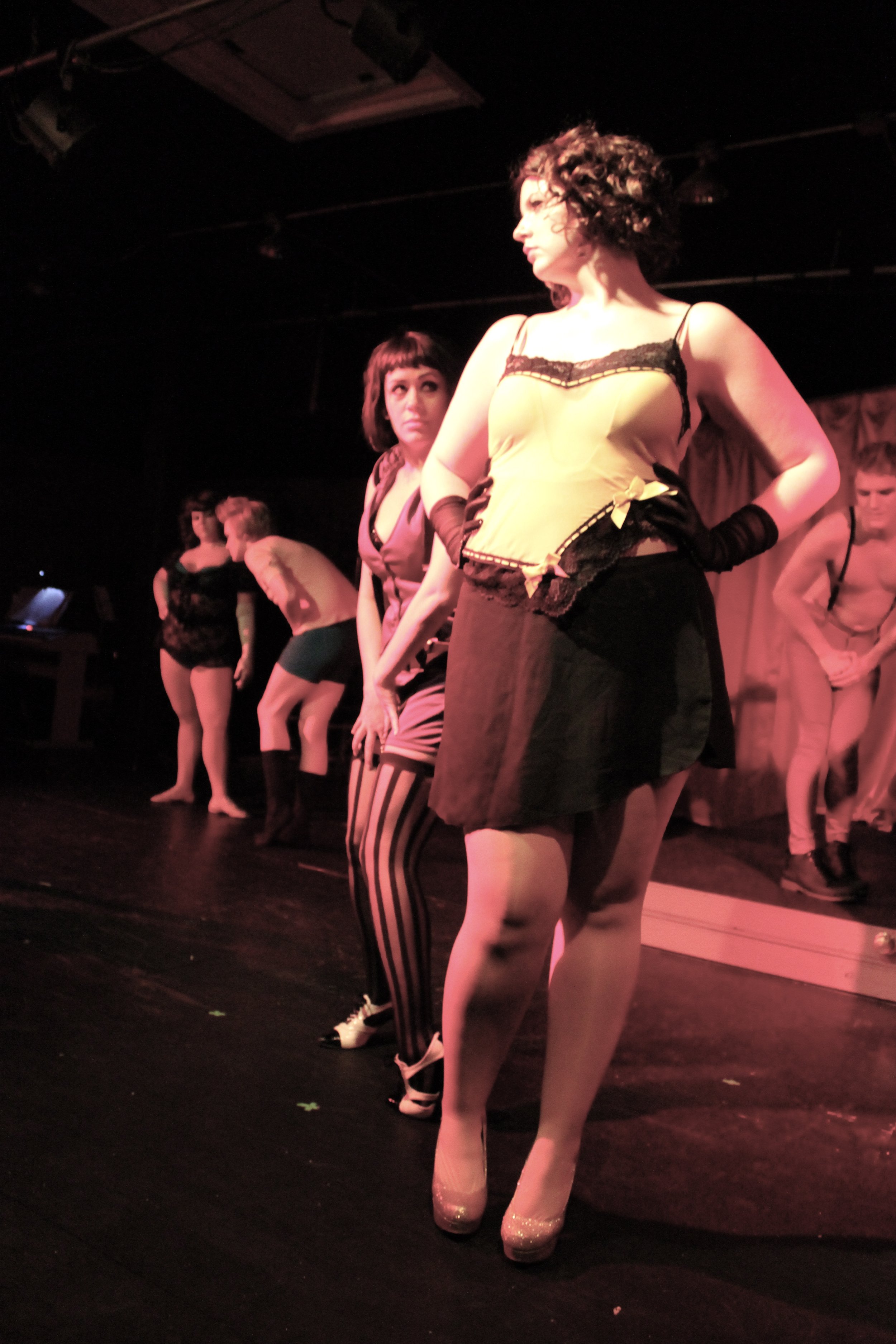

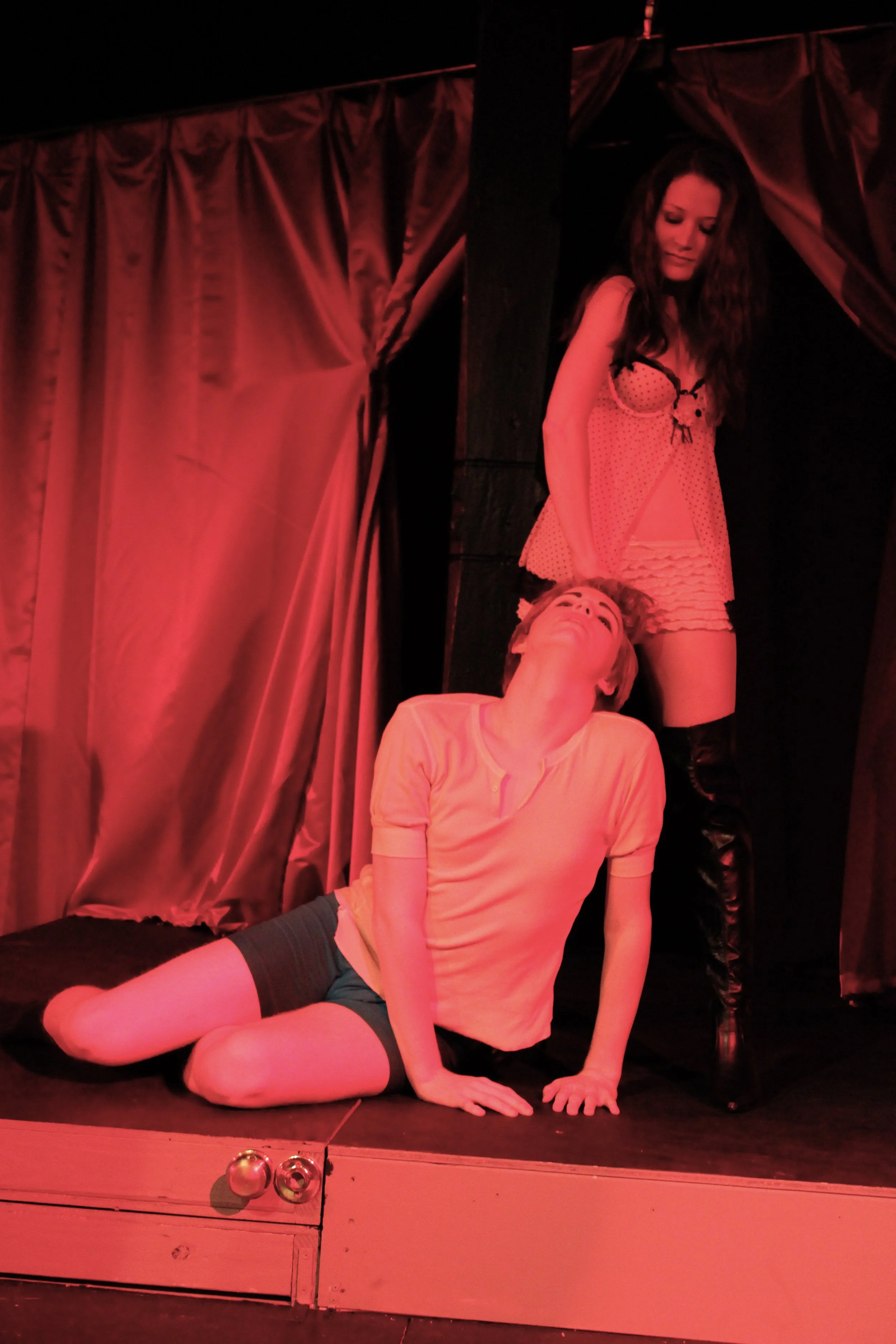




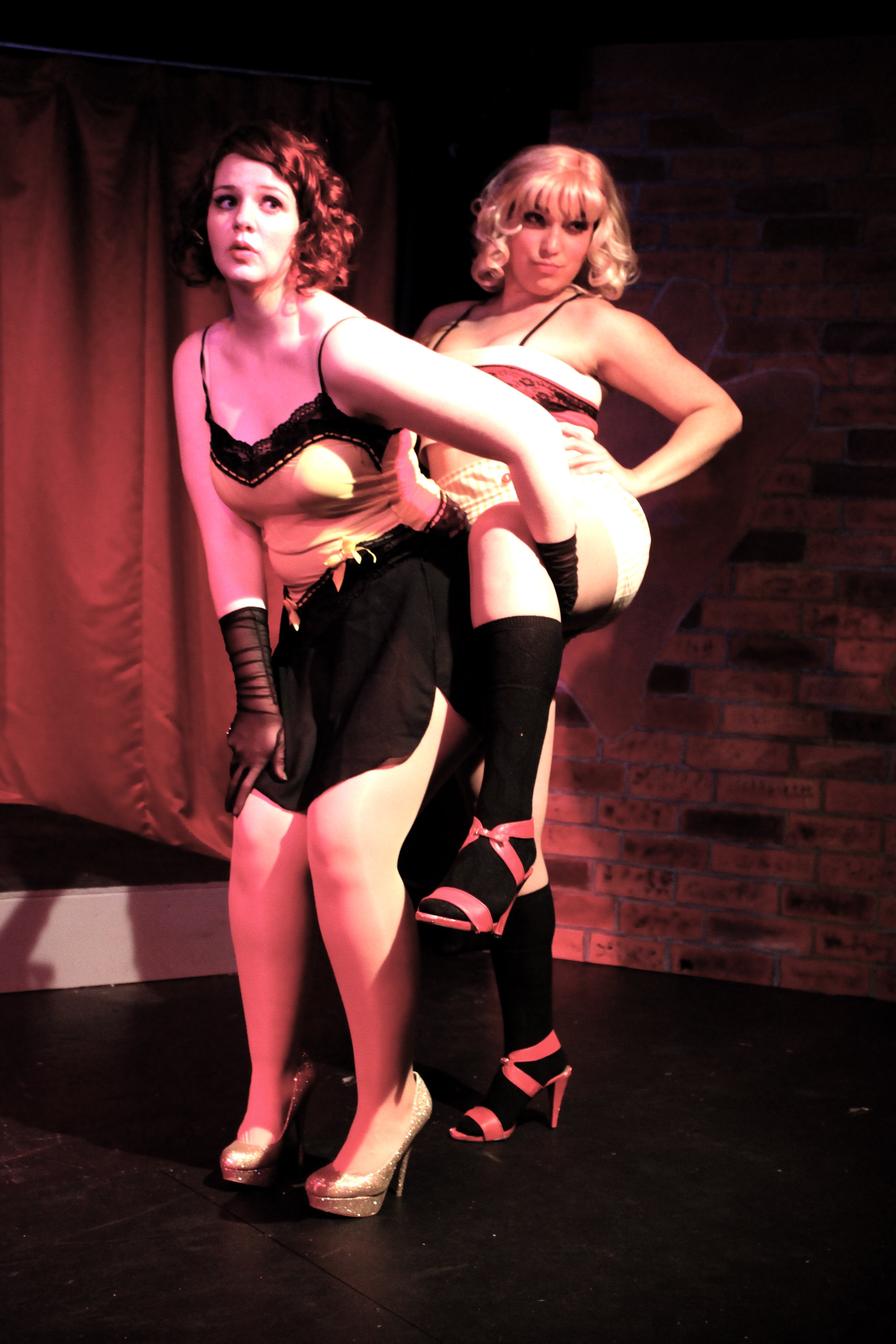







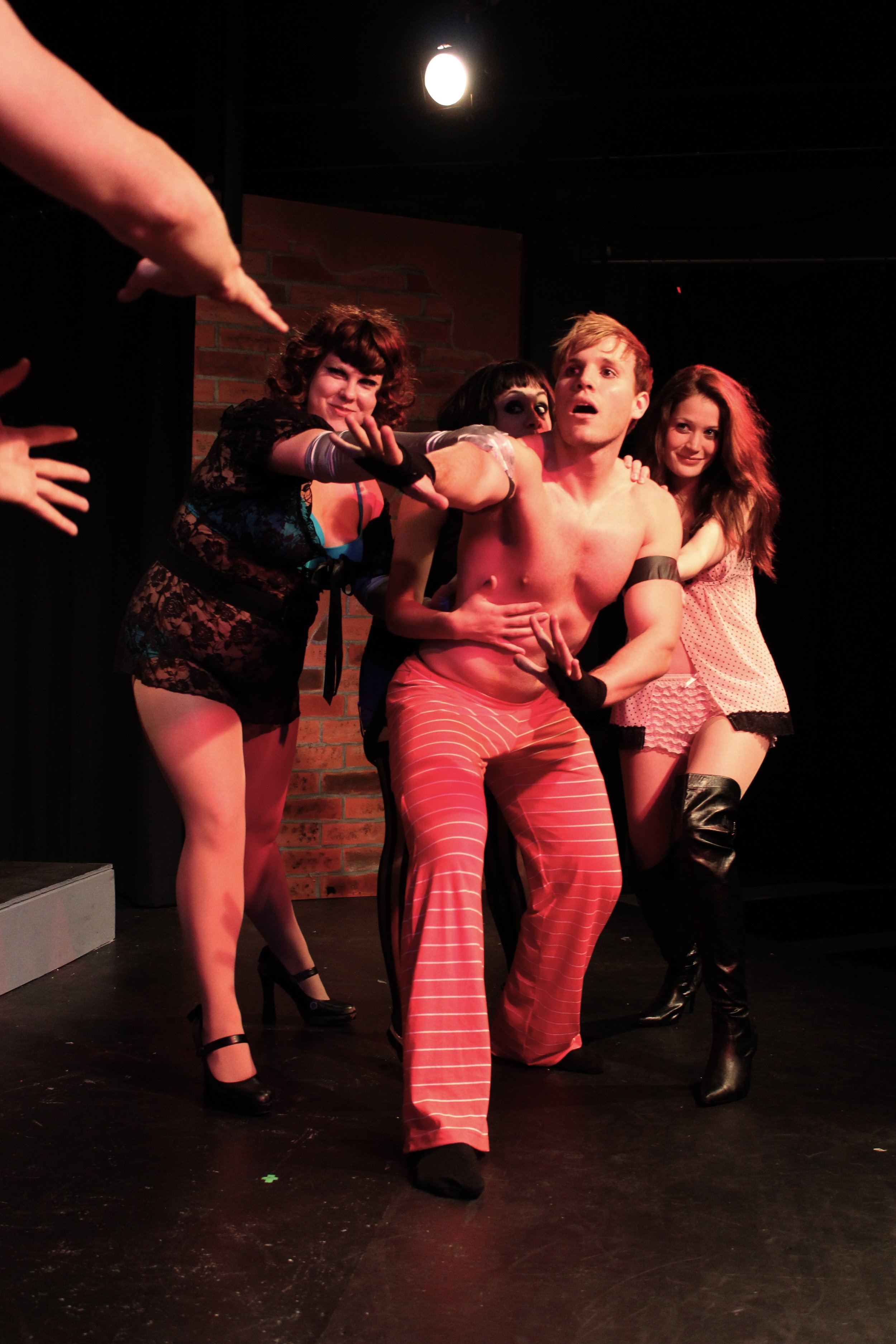
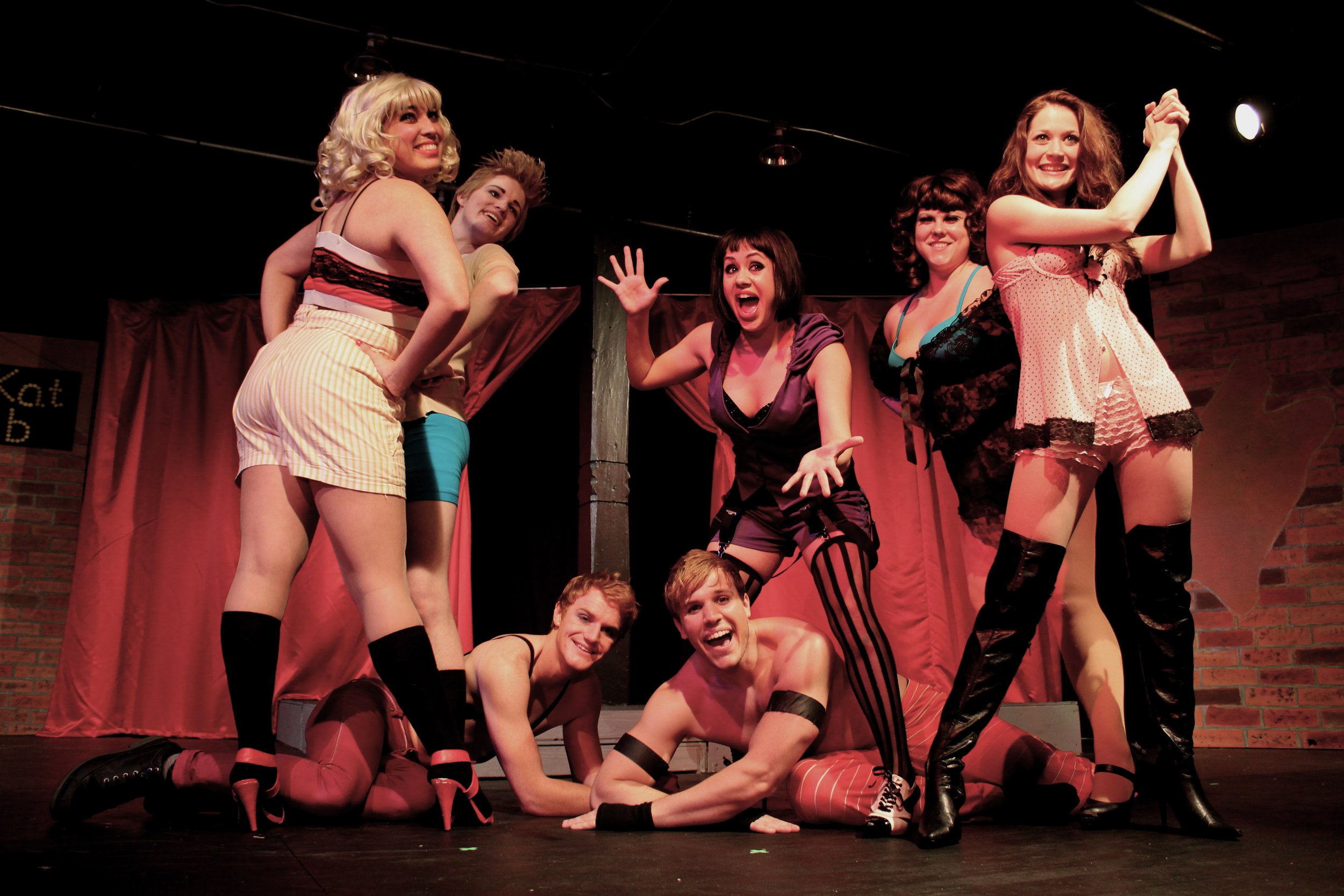
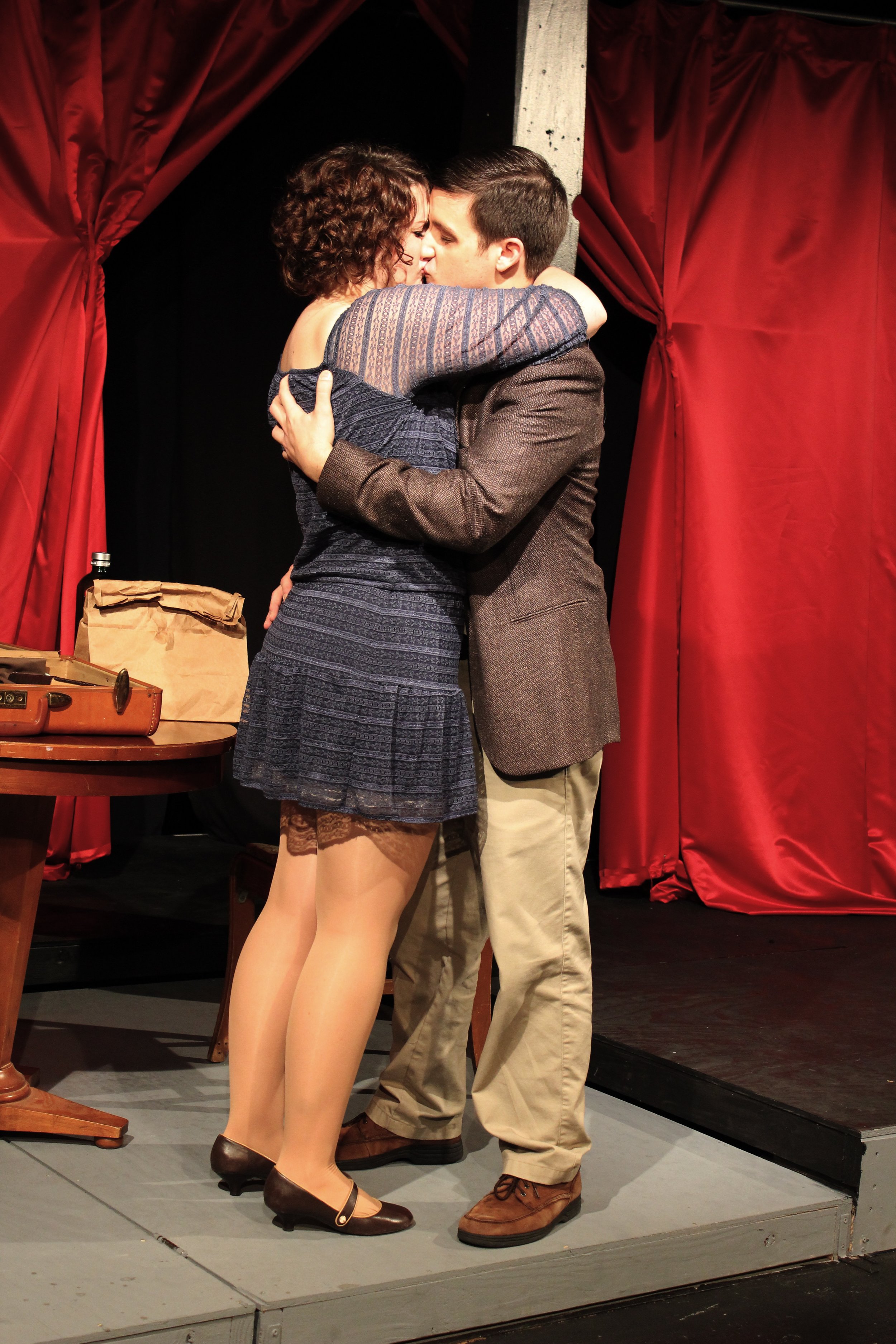
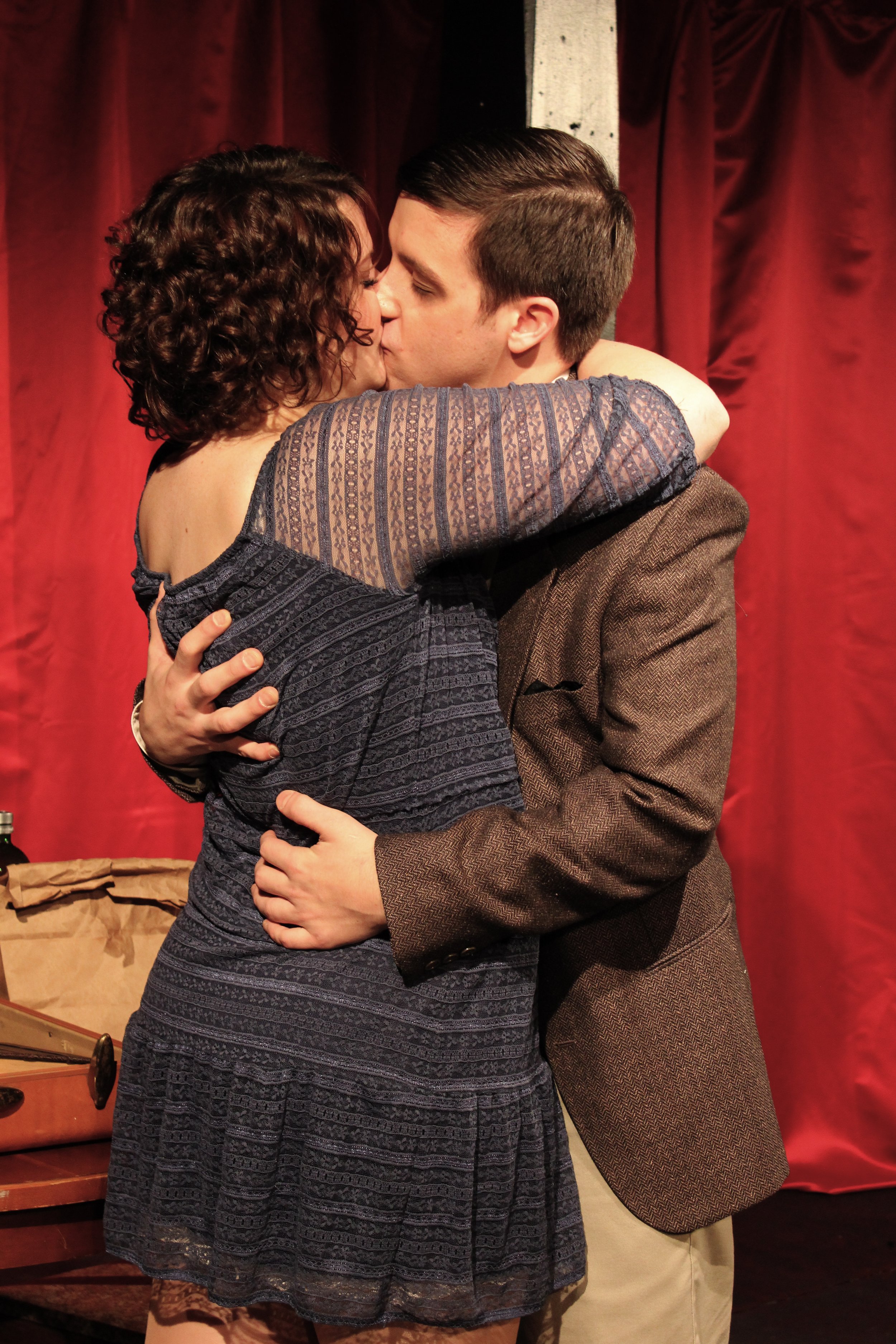




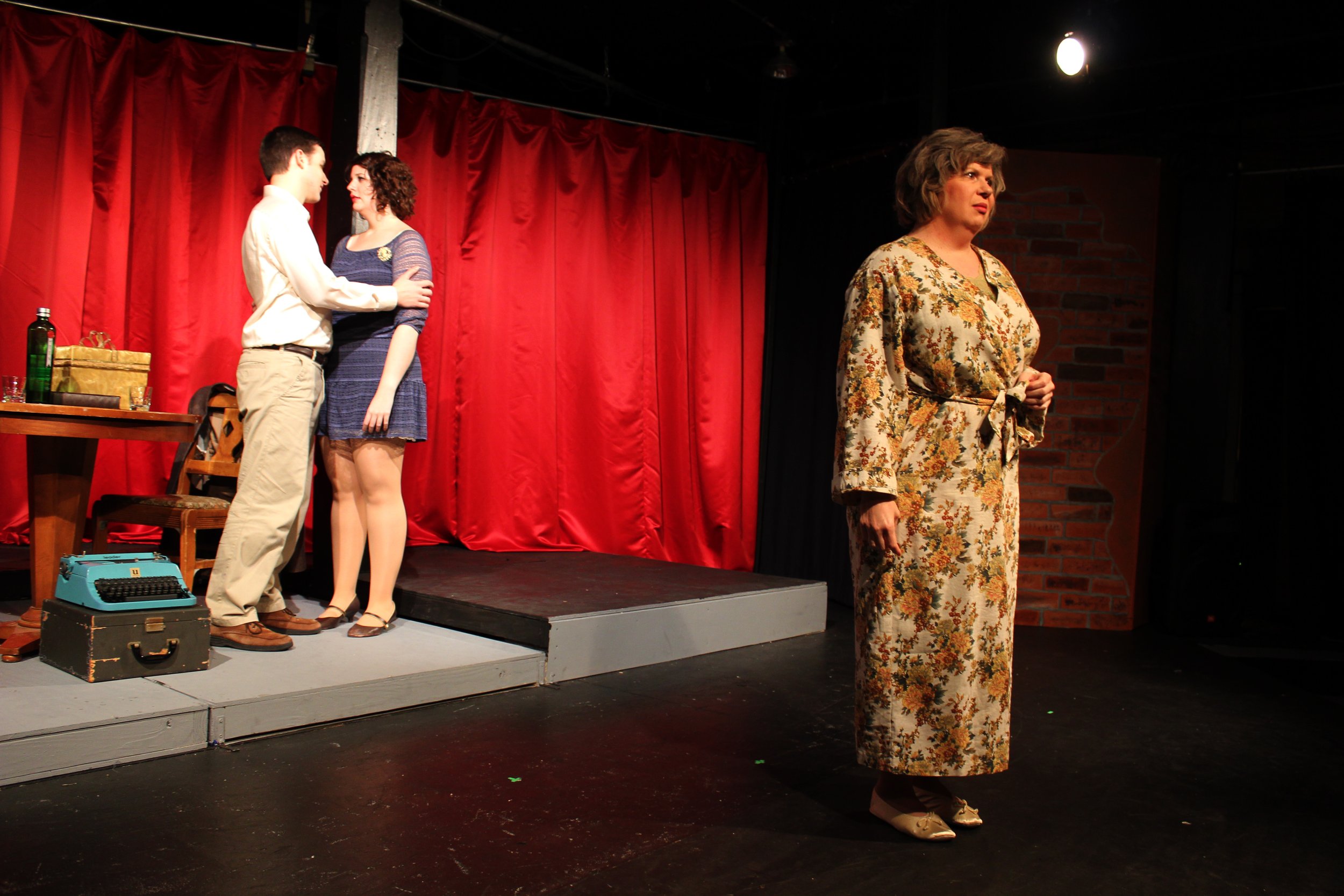
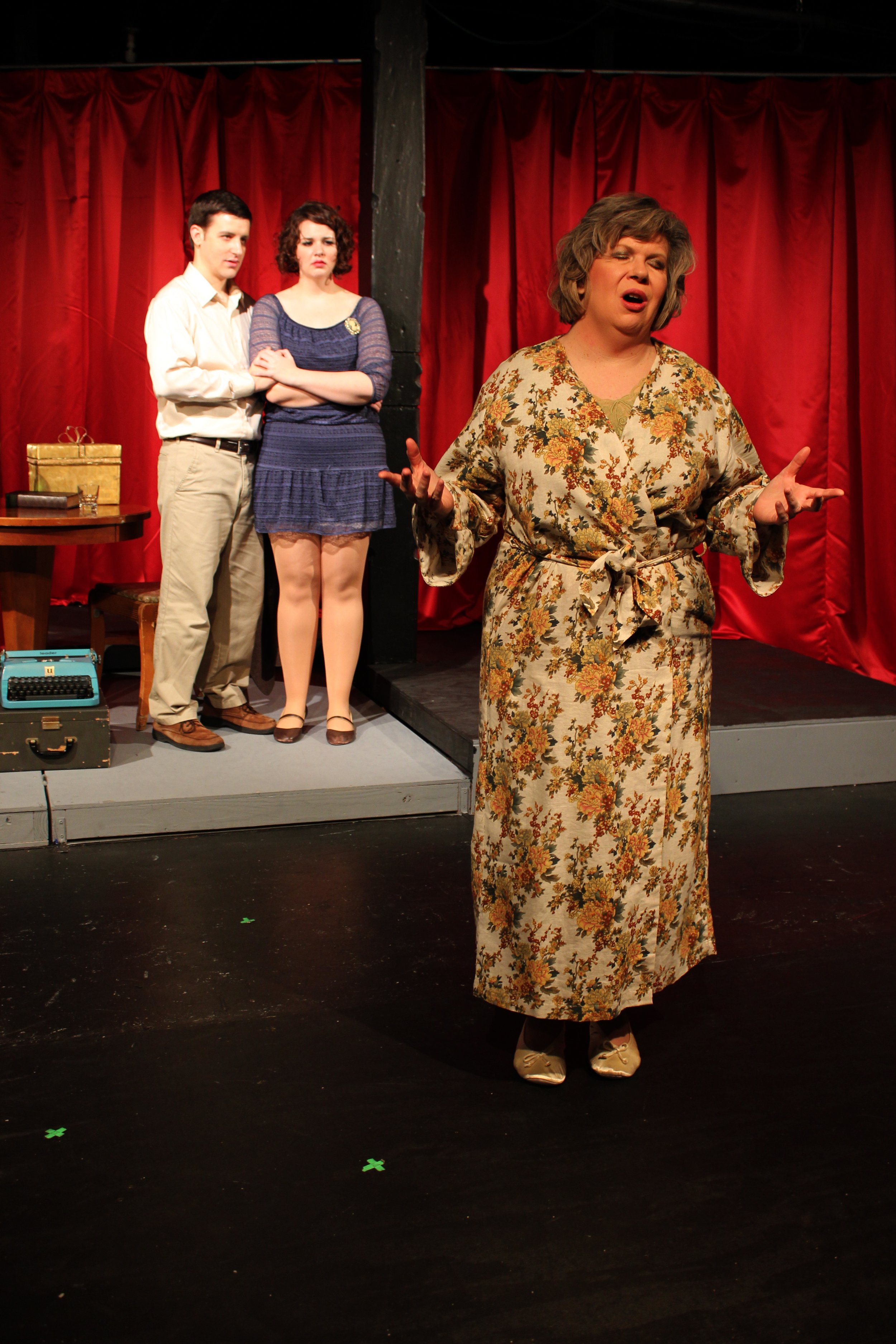



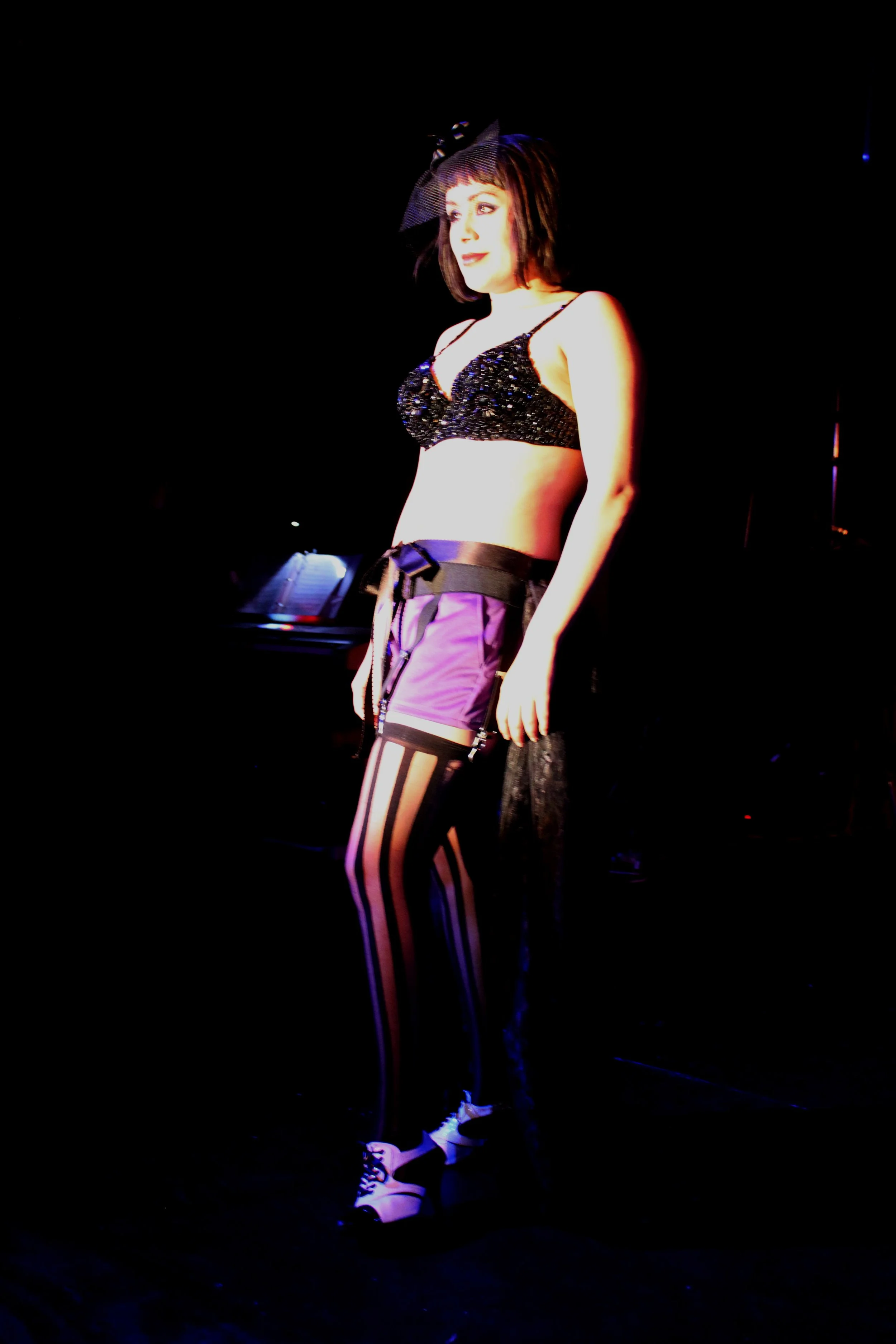









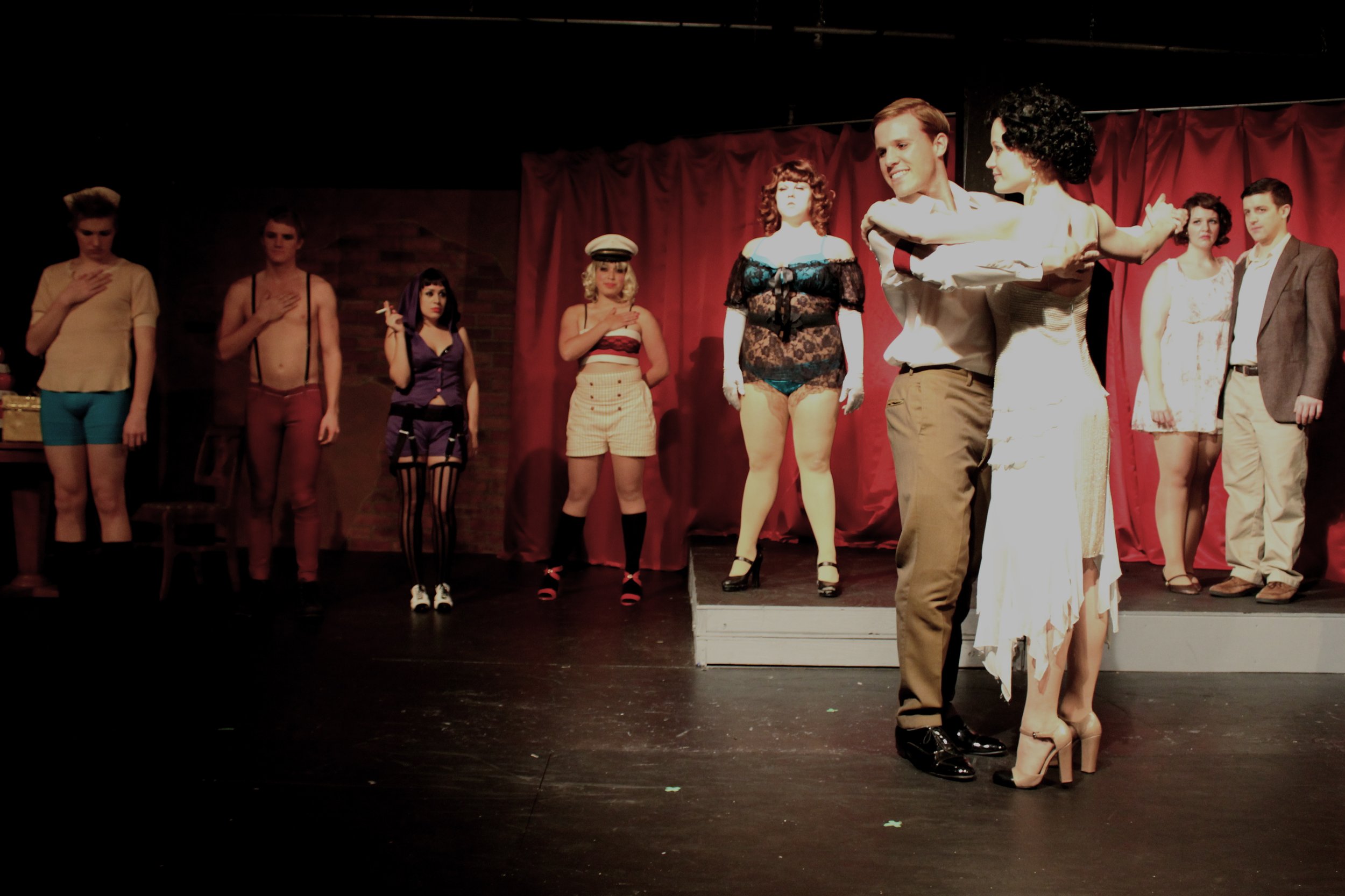











ASSISTANT DIRECTOR - NICK HEIL
MUSIC DIRECTOR - MOLLY BURRETS
ACCOMPANIST/CONDUCTOR - AARON SMITH
STAGE MANAGER - CESARA WALTERS
ASSISTANT STAGE MANAGER - MICHELLE SCHOVAERS WAGLEY
SCENIC DESIGNER - KAT HINSON
SCENIC CONSTRUCTION - BRYAN BURRETS
COSTUME DESIGNER - RACHEL GILMORE
PROPERTIES DESIGNER - MELISSA MARFISI
Concept
I knew immediately that I didn't want this to feel removed from today's audience. I wanted to leave as little room as possible for the audience to leave thinking that "those people" had this problem, but we do not. So I tasked my design team to create a Kit Kat Klub that existed simultaneously in may different eras.
We used black light to create an "underbelly" to the set and costume design that allowed us to both "black out" and overlay the bright veneer with the darkness it was hiding. Our version of the famous concentration camp reveal of the 1998 revival involved marginalized labels previously invisible, inked on the bodies of our characters; labels that still exist today.
Why this show?
Cabaret has a history of making its ultimate point - a critique of complacency - in a variety of ways, from the ostensibly asexual Emcee created by Joel Grey to the overtly sexual version that Alan Cumming brought to life. For a town that has grown around the most conservative public university in the country, creating our own take on this wildly different story felt appropriate. How could we stretch the audience, make them uncomfortable, and at the same time help them to question their part in oppression today?
Lessons Learned
This show taught me the importance of trusting the audience. My efforts to ensure that they couldn't leave without feeling a connection to these characters in today's world was perhaps more heavy-handed that I intended; I think in part because I worked very hard to ensure that we were not copying any concepts from the 1998 revival. I would love to direct this show again and allow myself to let go of those expectations and see what new limitations and opportunities the script might possess.